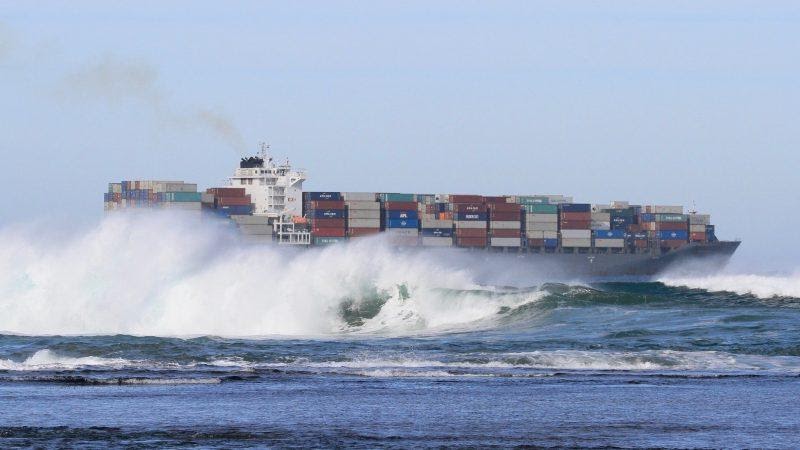For some, travelers, going on a journey is an energizing and novel experience. Indeed, even the individuals who have cruised before discover something uncommon about investing energy adrift. While the facts confirm that a journey excursion can be quite possibly the most loosening up get-away alternatives, it is likewise evident that voyage transport law and ward can be probably the most mind boggling.
Because of the way that a voyage might be cruising in waters that are under an unexpected legitimate locale in comparison to the country that the journey transport calls home, and compounded by the way that Cash to master and representatives frequently have a wide range of nations of starting point, it’s not difficult to perceive how voyage transport law can require exploring an apparently inconceivable pile of formality.
However, in case you’re getting ready to set out on a journey, it is important to comprehend what rules and guidelines concern you and your voyaging allies. We generally advocate for voyage goers to acquire however much data in advance as could be expected. Despite the fact that your odds of mishap and injury are thin, being set up with a fundamental comprehension of your legitimate rights places you in a lot more grounded position from which to push ahead. In light of this information, you will be better prepared to have the most pleasant and calm experience you can, while exploring any unforeseen occasions that come your direction.
Why is Cruise Ship Law So Complex?
One of the principle reasons that indicting a wrongdoing adrift can be more testing than arraigning a wrongdoing ashore is that maritime law is known for being one of the least refreshed and generally many-sided of the lawful areas. As a rule, laws that oversee ocean based activities are many years or at times many years–old.
In that time, a great deal has changed on the high oceans, implying that these old laws may at this point don’t be important or useful to travelers and crewmembers. However, with no new enactment to explain or modernize maritime law, lawyers and their customers are left to swim through the frequently dinky legitimate waters.
Claims over occurrences happening on board voyage ships are typically recorded in courts in explicit wards that are chosen by the journey line and indicated in the voyage traveler ticket. For a large portion of the significant journey lines (Carnival, Royal Caribbean, Celebrity, Norwegian) the purview is in the Federal Court in Miami (United States District Court for the Southern District of Florida); for Princess, it is in California; for Holland America it is in Washington State. Additionally, the government law permits journey lines to abbreviate the legal time limit inside which travelers are permitted to document claims for individual injury to 1 year from the date of the occurrence, from the ordinary long term maritime individual injury legal time limit. Likewise, the journey lines are permitted to necessitate that they be given composed notification of a case inside a half year of the occurrence. You can perceive how rapidly exploring journey transport laws and purview can get confounded. It is vital to allude to your voyage ticket for the entirety of the terms and conditions identified with your journey!
Furthermore, the worldwide agendas of numerous travels can toss an additional layer of disarray on voyage transport cases, making many marvel where to sue for episodes happening in ports of call; and who precisely who is permitted to authorize the law adrift?
When is the FBI in question?
Voyage transport law and locale is something inquisitive. Because of the way that travels don’t have official police, it might appear like wrongdoings can happen with little oversight. All things considered, voyage security isn’t exactly as scary to lawbreakers, nor as prepared to deal with the more genuine violations that occur adrift. Particularly in the event that you are an American resident, you might be pondering when the FBI engages in voyage wrongdoings?
Since 2010, the Cruise Vessel Security and Safety Act has required voyage dispatches that set out and land in the United States to report all violations that occur adrift. By and large, when violations are submitted in domains under U.S. purview, the FBI zeros in its endeavors on occurrences that have explicit punishments as determined under Title 18. These violations include: attack, murder, endeavor to submit murder or homicide, seizing, sexual maltreatment, burglary, and robbery. These violations and more are remembered for the journey wrongdoing measurements reported by the Supplier Payments of Transportation.
All things considered, wrongdoings in global waters may likewise require the association of the FBI.
Wrongdoings in International Waters
When a journey transport cruises in excess of 24 miles off of the shore of some random country, it is viewed as in global waters. This implies that the laws overseeing wrongdoings on the boat are controlled by the banner that the boat is cruising under. It isn’t extraordinary for a boat to be hailed in an unexpected country in comparison to the one from which it withdrew. Truth be told, journey lines regularly banner their boats in nations where the laws are less tough, to maintain a strategic distance from more noteworthy oversight.


